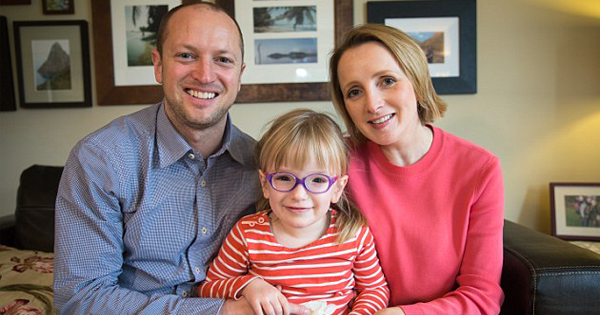Two little girls finally have diagnoses for their rare genetic diseases, thanks to groundbreaking medical tests by the 100,000 Genomes Project.
4-year-old Georgia Walburn-Green has been sick since birth, but doctors were never able to give her a concrete diagnosis, so it soon became impossible to treat her symptoms.
“It’s been very hard living with an undiagnosed child,” Georgia’s mother, Amanda Walburn-Green, explained. “It’s a constant rollercoaster of being tested for large numbers of horrific conditions before being given the all clear.”
It wasn’t until the 100,000 Genomes Project—a government-led program that aims to sequence 100,000 whole genomes to find the genetic cause behind diseases—stepped in to help that Georgia’s family finally got the answers they’ve been searching for.
According to The Daily Mail, “It is hoped that by delving deep into a person’s DNA and combining the data with information from their health records, it will be possible to learn more about their illness than ever before.”
“Crucially, a single test should be enough to give a diagnosis,” the news outlet added. “This is because rather than testing a single gene at a time, a slow, expensive and distressing process, doctors will check the patient’s entire DNA in one go.”
Another patient, 4-year-old Jessica Wright, from East Sussex, suddenly became unsteady on her feet and began experiencing seizures shortly after her first birthday.
Though she underwent many invasive tests at a young age, Jessica’s condition was not diagnosed until she was asked to participate in the Genomes Project at Great Ormond Street Hospital.
Now that the project has given Georgia and Jessica’s families real diagnoses that they can treat, officials hope genomics will ultimately “change the way we diagnose patients,” according to Professor Lyn Chitty, the clinical lead at GOSH for the project.





